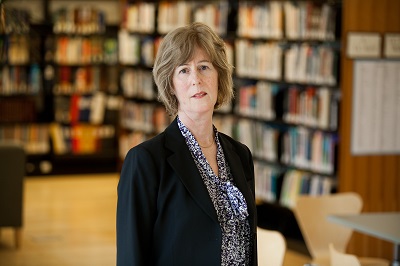The Bloorview Research Institute (BRI) is recognized around the world for its leadership in the field of clinically applied and family-centred disability research, dedicated to creating meaningful and healthy futures for children and youth living with developmental differences and disabilities locally and worldwide.
The research institute is housed within Holland Bloorview Kids Rehabilitation Hospital, Canada's largest children's rehabilitation hospital.
To share the transformational research that our scientists are conducting everyday to scientific communities on a national and global stage, the research institute is proud to launch BRI Research Rounds.
The BRI Research Rounds is a free monthly speaker series featuring the research institute’s world renowned scientists in the field of neurodevelopmental conditions and disability research.
Held virtually, the monthly speaker series will shine a spotlight on how scientists are exploring the brains, bodies, and lived experiences of children, youth and adults with disabilities and developmental differences. The series will also showcase how our communities and the environments we build impact their quality of life and outcomes and how such understandings inform how we co-develop novel meaningful interventions and understand developmental diversity.
Featured Speaker:
Dr. Evdokia Anagnostou, vice president of research and director of the Bloorview Research Institute
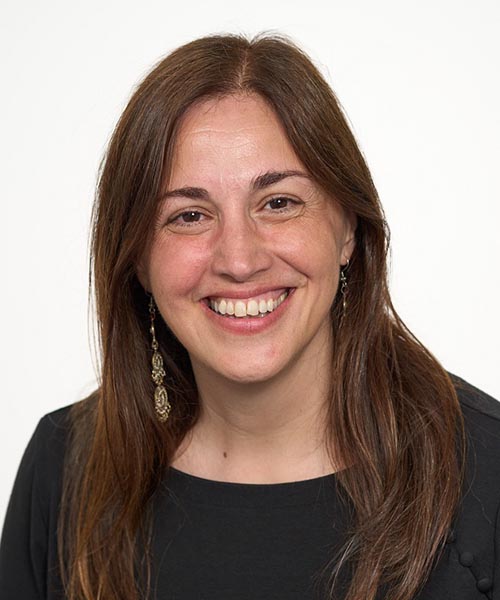
Date and time:
Tuesday, April 01, 2025, 12 to 1 p.m. EST
Zoom link:
Join from PC, Mac, iPad, or Android:
https://hollandbloorview.zoom.us/j/63988676764
Phone one-tap:
+15873281099,,63988676764# Canada
+16132093054,,63988676764# Canada
Join via audio:
+1 587 328 1099 Canada
+1 613 209 3054 Canada
+1 647 374 4685 Canada
+1 778 907 2071 Canada
+1 438 809 7799 Canada
+1 651 372 8299 US (Minnesota)
+1 301 715 8592 US (Washington DC)
+1 646 876 9923 US (New York)
Webinar ID: 639 8867 6764
International numbers available: https://hollandbloorview.zoom.us/u/gbVWGKBiNF
Research Talk
Transdiagnostic approaches vs precision health in neurodevelopmental conditions: perfect match or irreconcilable differences?
Significant investments are being made in both precision health and needs-based care. Emerging data challenge traditional diagnostic labels, reinforcing the shift toward needs-based care initiatives. At the same time, rapid advancements in genomics and other -omics are accelerating the potential of precision health.
Learning health systems struggle to reconcile these two approaches. This presentation will explore recent innovations in both areas and examine how they can be integrated to improve care for children and youth with neurodevelopmental conditions.
Biography
Dr. Evdokia Anagnostou is a child neurologist and professor of pediatrics at the University of Toronto, as well as vice-president of research at Holland Bloorview Kids Rehabilitation Hospital. She is a senior clinician scientist and co-director of the Autism Research Centre (ARC) at Holland Bloorview and the University of Toronto. Dr. Anagnostou holds the Canada Research Chair in Translational Therapeutics in Autism Spectrum Disorder (ASD) and the Dr. Stuart D. Sims Chair in Autism at Holland Bloorview. She was recently elected as a fellow of the Canadian Academy of Health Sciences.
Dr. Anagnostou has received significant international funding to investigate the biological differences associated with ASD and other neurodevelopmental conditions, with the goal of translating these insights into novel interventions. Her research also focuses on health system innovation, stakeholder engagement, and the impact of ASD in marginalized populations. She serves on multiple government committees dedicated to improving diagnostic and intervention pathways and is an editorial board member for several academic journals and grant review panels.
Dr. Anagnostou is recognized for her contributions to training young clinicians and scientists and for her advocacy for women in STEM. She currently represents North America on the INSAR Global Senior Leaders Committee.
Learn more.
Previous Research Talks
Date and Time:
Thursday, Feb. 27 2025, 12 to 1 p.m. EST
Featured Speaker:
Dr. Sarah Munce, implementation scientist, Bloorview Research Institute, Holland Bloorview Kids Rehabilitation Hospital
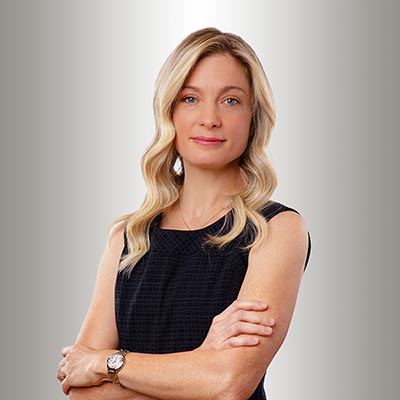
Research Talk
A journey towards meaningful co-design – reflections on engaging with youth, family, and community partners
The research talk, “A Journey Towards Meaningful Co-Design– Reflections on Engaging with Youth, Family, and Community Partners” will review Sarah’s experiences with engaging with a variety of knowledge users in developing interventions for youth and families with disabilities. As characterized by KA McKercher, “Co-design brings together lived experience, lived expertise and professional experience to learn from each other and make things better - by design”. Co-design also involves the principles of sharing power, prioritizing relationships, using participatory means, and building capacity. Sarah will present some of the preliminary results from the Preferred Components for Co-design in Research (PRECISE) guideline project which aims to enhance the consistency, transparency, and quality of reporting co-design studies used to develop complex health interventions. Based on her research program, she will also reflect on the challenges of this work as well as offer suggestions on how authentic co-design might lead to more meaningful, effective, and sustainable solutions.
Biography
Dr. Sarah Munce, PhD, is an implementation scientist at Holland Bloorview Kids Rehabilitation Hospital, Bloorview Research Institute. She is also an assistant professor (status) at the Institute of Health Policy, Management and Evaluation (IHPME) with a cross-appointment in the Rehabilitation Sciences Institute (RSI) at the University of Toronto. Sarah is one of the graduate coordinators at RSI and the co-instructor for the Mixed Methods in Health Services Research course at IHPME. She is the former membership chair for the Mixed Methods International Research Association and current editor-in-chief for JMIR Rehabilitation and Assistive Technologies.
Sarah is a former AMS Healthcare Fellow in Compassion and Artificial Intelligence and her research has been funded by the Canadian Institutes of Health Research, Kids Brain Health Network, Brain Canada Foundation, and the Craig H. Neilsen Foundation.
Learn more.
Date and Time:
Friday, Jan. 24 2025, 12 to 1 p.m. EST
Featured Speaker:
Dr. Jacob Ellegood, neuroimaging scientist, Bloorview Research Institute, Holland Bloorview Kids Rehabilitation Hospital
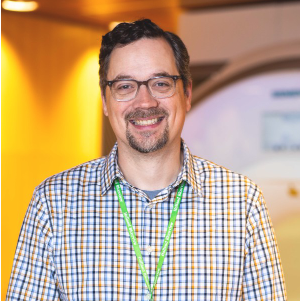
Research Talk
Neuroimaging’s Role in Precision Medicine: Enhancing Diagnostic Specificity and Fostering Equity and Inclusion
This talk explores the role of neuroimaging in advancing precision medicine for neurodevelopmental disorders. It highlights research aimed at understanding the heterogeneity both across and within individuals to inform personalized diagnostic and therapeutic solutions. Past, current, and future projects will be discussed, emphasizing their contributions to enhancing diagnostic specificity and improving patient outcomes. The presentation will also address strategies for making MRI scanning more inclusive, fostering equity in neuroimaging research and clinical applications.
Biography
Dr. Ellegood is a neuroscientist and has an extensive background in neuroimaging, particularly MRI. Prior to starting at BRI, he worked at the Mouse Imaging Centre (MICe) at the Hospital for Sick Children where he initiated a research program to use neuroimaging techniques to redefine how neurodevelopmental disorders are diagnosed and categorized in both mice and humans. Dr. Ellegood is interested in understanding of heterogeneity across and within individuals with neurodevelopmental disorders to implement a precision medicine approach and inform personalized solutions. Specifically, his work focuses on using structural and functional MRI imaging techniques to understand how the brain develops regardless of diagnosis to subcategorize psychological disorders.
He also aims to address the inequities in large-scale MRI databases by helping to both “rescue” imaging data that has traditionally not be included in analyses but also increase research MRI access to young children living with disabilities and other individuals from structurally disadvantaged groups so that these groups are more fully represented in data collection for studies.
Learn more
Date and Time:
Wednesday, Dec. 11 2024, 12 to 1 p.m. EST
Featured Speaker:
Dr. Danielle Baribeau, clinician scientist, Bloorview Research Institute, and child and adolescent psychiatrist, Holland Bloorview Kids Rehabilitation Hospital
![]()
Research Talk
Mental health trajectories and targeted treatments in neurodevelopmental conditions
This presentation will summarize existing evidence as well as evidence gaps regarding mental health outcomes in children with neurodevelopmental conditions including rare genetic disorders.
Biological and psychosocial predictors of mental health trajectories will be presented. Current trends and research gaps regarding mental health care for neurodivergent youth will be reviewed, including complexities related biological heterogeneity as well as mental health system access.
Biography
Dr. Danielle Baribeau is a child and adolescent psychiatrist and clinician-scientist at Holland Bloorview Kids Rehabilitation Hospital in Toronto. She is an assistant professor with the Department of Psychiatry and the Institute of Medical Sciences at the University of Toronto.
Dr. Baribeau’s clinical foci are on autism, rare genetic neurodevelopmental disorders, and psychopharmacology. Her Canadian Institute of Health Research-funded research program is focused on clinically translating genetic advances into improved mental health care in autism and related neurodevelopmental conditions. Her current studies use health administrative data to examine health system outcomes in autism and rare genetic disorders from across Ontario. She is the site or principal investigator for several clinical trials in children. She also works with the Ontario government towards the implementation of advanced genetic testing in neurodevelopmental conditions across the province.
Learn more
Date and Time:
Tuesday, October 8 2024, 12 to 1 p.m. EST
Featured Speaker:
Dr. Sally Lindsay, senior scientist, Bloorview Research Institute
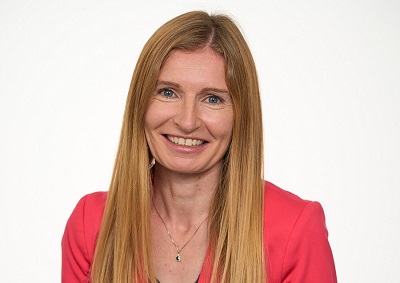
Research Talk
Understanding the importance of the social determinants of health for children and youth with disabilities
The World Health Organization highlights the importance of addressing the social determinants of health (e.g., education, employment, food security, housing, economic support, health care access etc.) for improving health and reducing health inequities. Research consistently shows that social determinants of health can be just as important as health care or lifestyle choices in influencing health. Recent systematic reviews and needs assessments highlight the urgent need to prioritize the social determinants of health when supporting people living with a disability, especially children and youth. This presentation will provide an overview of my research program and highlight examples of several key areas of how the social determinants of health are critically important for fostering the social inclusion and wellbeing of children and youth with disabilities.
Biography
Dr. Sally Lindsay is a senior scientist at Bloorview Research Institute, Holland Bloorview Kids Rehabilitation Hospital and professor in the Departments of Occupational Science and Occupational Therapy, and Rehabilitation Sciences, University of Toronto. She is an elected member of the College of New Scholars, Artists and Scientists of the Royal Society of Canada. Her research focuses on the social inclusion and participation of children, youth and young adults with disabilities. She has 190 publications, 370 presentations and has been awarded 20 peer-reviewed grants totalling over $9.5 million from SSHRC, CIHR among others. She recently held an Early Researcher Award from the Ontario Ministry of Research and Innovation for her work on "Improving the inclusion and participation of people with disabilities in the labour force". Dr. Lindsay leads the TRAIL (Transitions and Inclusive environments) Lab at Holland Bloorview Kids Rehabilitation Hospital where she has trained over 110 students.
Learn more
Date and time:
September 10, 2024, Noon to 1 p.m. EST
Featured Speaker:
Dr.De-Lawrence Lamptey, EMBARK (Empowered Black Academics, Researchers and Knowledge creators) Scientist
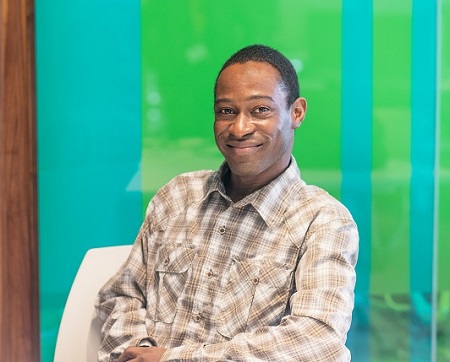
Research Talk
Child health and wellbeing at the intersection of racial/ethnic identity and disability
Recent Canadian national surveys on health and wellbeing of children and youth collect data on disability and sociodemographic factors often associated with inequities such as racial/ethnic identity. In Dr. Lamptey’s BRI Research Rounds talk, he will utilize the Canadian Health Survey on Children and Youth to examine various aspects of health and wellbeing at the intersection racial/ethnic identity and disability. Attendees will learn about Canadian national surveys that could be used to explore the experiences of racialized or ethnically diverse children and youth with disabilities, the strengths and limitations of these surveys, and implications for research and practice.
Biography
As the Bloorview Research Institute’s inaugural EMBARK scientist, Dr. De-Lawrence Lamptey’s research focuses on the intersectionality of childhood disability and racial identity/ethnicity across Canada. Through his research, he aims to better understand the unique experiences of racialized or ethnically diverse children and youth with disabilities and their families. He also aims to establish the Race/Ethnicity And Disability (READ) research lab to mobilize researchers, students, families and other key stakeholders (e.g., community partners and policymakers) to advance research needed to inform the development of policies and programs to adequately support racialized or ethnically diverse children and youth with disabilities and their families.
Learn more
Date and time:
July 9, 2024, Noon to 1 p.m. EST
Featured Speaker:
Dr. Gillian King, distinguished senior scientist, Canada Research Chair in Optimal Care for Children with Disabilities (Tier 1) and professor at the University of Toronto's Department of Occupational Science and Occupational Therapy.
Research Talk
"In tune and on the same page”: The power of engagement in rehabilitation therapy
Engagement is important to client experiences in healthcare services and to intervention outcomes. Engagement is often assumed and overlooked despite its implications for the involvement of youth and parents in goal setting, therapy intervention activities, implementing agreed-upon plans, and in relationships with service providers. The ability to engage clients is sometimes diminished as being a ‘soft skill’ when it is a core skill in supporting and mobilizing client change in healthcare practice. In our ongoing multidisciplinary research program, we have defined engagement as active involvement and investment in therapy sessions. The lack of attention to engagement in pediatric rehabilitation therapy can be partly attributed to not knowing how to recognize engagement or not understanding how to measure it. Accordingly, the objectives of this presentation are to define engagement, discuss how engagement can be conceptualized and measured, and to consider the power of engagement in mobilizing change in rehabilitation therapy.
Biography
Dr. Gillian King is a distinguished senior scientist at the Bloorview Research Institute, a professor in the Department of Occupational Science and Occupational Therapy at the University of Toronto, and Canada Research Chair in Optimal Care for Children with Disabilities (Tier 1). She holds adjunct appointments in the School of Communication Sciences and Disorders (Western University) and in the School of Rehabilitation Science at McMaster University.
Dr. King has held over 100 peer-reviewed grants, authored over 245 peer-reviewed articles, and has developed and published 22 measures for use in pediatric rehabilitation. Her work focuses on psychosocial aspects of care, including client engagement, family-centred care, client and family resiliency, transition programming and service delivery.
Her current research focuses on client, parent, and therapist engagement in service delivery, the development of an up-to-date measure of family-centred care, the mental health and participation of children and youth with disabilities, solution-focused coaching, and the role of resiliency in rehabilitation service delivery.
Learn more about Dr. King's research.
Date and time:
June 21, 2024, Noon to 1 p.m. EST
Featured Speaker:
Dr. Azadeh Kushki, senior scientist and associate chief of data science, associate professor
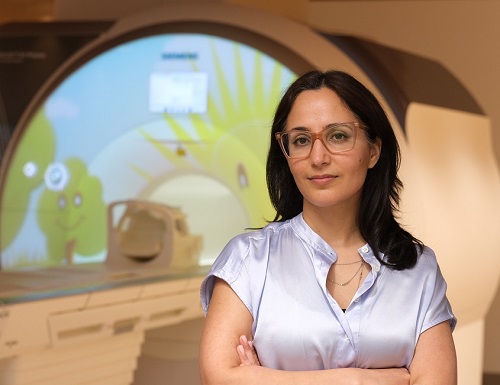
Research Talk
Personalized health for neurodivergent children: from biology to technology-based supports
Despite decades of research, our ability to change long-term outcomes for neurodivergent children remains very limited. Our existing diagnostic labels are broad and encompass diverse sets of biologies, phenotypes, and experiences of distress, with little precision to guide interventions and care suited to an individual’s uniqueness. In this context, a critical need exists for personalized health: an approach to care where interventions and accommodations are informed by each individual’s biology and environmental context. In this talk, Dr Kushki will highlight her team’s work in understanding how neurodevelopmental diversity drives trajectories, responses to interventions, and outcomes. She will also discuss technology-based supports that can enable the delivery of personalized interventions and supports in real-world settings.
Biography
Dr. Azadeh Kushki is the Associate Chief of Data Science at the Bloorview Research Institute, Holland Bloorview Kids Rehabilitation Hospital. She is also an Associate Professor at the Institute of Biomedical Engineering at the University of Toronto, and a senior scientist at the Bloorview Research Institute. She leads the Neurodiversity and Personalized Health Lab, a highly translational program of research focused on using data science to advance equity-driven personalized health for children with neurodevelopmental differences and disabilities.
Learn more about Azadeh’s research
Date and time:
May 14, 2024, Noon to 1 p.m. EST
Featured Speaker:
Dr. Virginia Wright, senior scientist
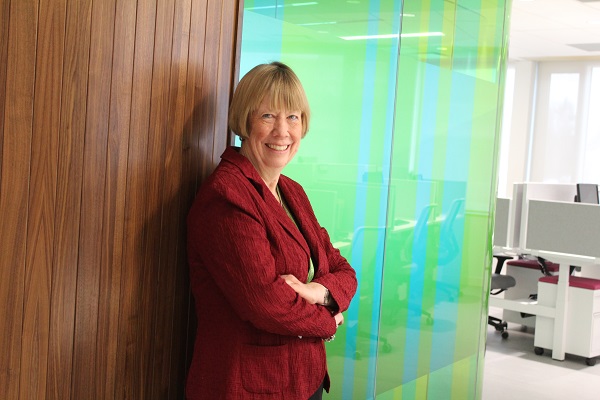
Research Talk
Measurement matters: A view from the inside
Indeed, outcome measurement has been the cornerstone of Dr. Virginia Wright’s research in pediatric rehabilitation since the 1980s. Back then, measuring outcomes first came to her attention with the development of measures such as the Gross Motor Function Measure that was created specifically to capture changes in a child’s abilities/performance.
In Dr. Wright’s BRI Research Rounds talk, she will highlight the ‘developmental stages’ of measure creation – from ’conception and birth’ through ‘childhood and teenage years’ to ‘world connections’. She will feature three measures developed by her research team to illustrate this developmental process:
- the Challenge motor skills assessment;
- parent-report pediatric Family Needs Questionnaire; and
- parent and child-report Prosthetic Upper Limb Functional Index-2 [PUFI-2] App.
In addition, Dr. Wright will touch on the principles of equity/accessibility of measurement. Attendees will learn about the joys and challenges of the creation/implementation process, and apply this new knowledge in relation to their clinical and research measurement needs and how to get involved in the process.
Biography
Dr. Virginia Wright is a senior scientist at Holland Bloorview Kids Rehabilitation Hospital’s Bloorview Research Institute and leads the SPARK (Supporting Physical Activity-based rehabilitation Research for Kids) research lab. She is also a professor (status) at University of Toronto’s Department of Physical Therapy and Rehabilitation Sciences Institute. Her research primarily focuses on developing and validating outcome measures for clinicians to assess and develop targeted treatment plans for children with disabilities and developmental differences such as cerebral palsy, acquired brain injury and autism. For example, one of her outcome measures, PUFI-2, helps clinicians understand how well children with upper-limb differences can integrate their prosthetic device into their daily lives. Dr. Wright and research team put measurement in practice through physiotherapy-based intervention studies, and are currently conducting physical activity/participation research involving use of innovative robotic technologies (e.g. Lokomat and Trexo Plus robotic-assisted gait training devices) within the context of motor learning-based therapy.
Date and time:
April 9, 2024, Noon to 1 p.m. EST
Featured Speaker:
Dr. Timothy Ross, scientist and director of the EPIC (Engagement & Planning for Inclusive Communities) Lab
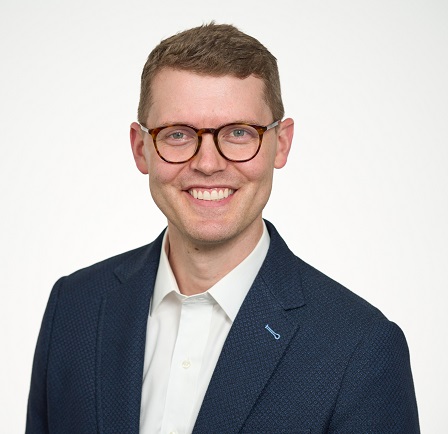
Research Talk
Ableism, Childhood Disability, and Community Inclusion
Ableist elements within the planning and design of our communities continue to have marginalizing effects on the everyday lives of some disabled children and their families. In this talk, Dr. Ross will outline his lab’s research concerning normalized barriers across a range of community spaces, services, and systems (e.g., playgrounds, school travel, air travel, pediatric healthcare access, accessible taxi services, housing), and how these barriers impact the lives of disabled children and their families. Attention will also be given to different actions we can perform to help unsettle and address normalized ableism in our communities. Attendees will gain a deeper understanding of how ableism is present in community planning and design, how it shapes experiences of inclusion/exclusion, and what we can do address ableism and advance more inclusive communities for disabled children and their families.
Biography
Timothy Ross, PhD, RPP, is a Scientist and Director of the Engagement & Planning for Inclusive Communities (EPIC) Lab within the Bloorview Research Institute at Holland Bloorview Kids Rehabilitation Hospital. He is also an Assistant Professor (Status) in the University of Toronto’s Department of Geography & Planning and Rehabilitation Sciences Institute.
Dr. Ross’ research explores experiences of disabled children and their families and aims to advance more inclusive communities. Topics he considers include inclusive play, education access, pediatric health care access, transportation, housing, and institutional ableism. Questions about experiences of disability, the normalcy of ableism, and how they relate to the planning and design of our built environments, services, and systems are central to Dr. Ross’ research. Some of his current projects concern schoolyard design, the organization of disabled children’s school travel, playground programming and supportive housing experiences.
Learn more about Dr. Ross’ research and publications.
Date and time:
Tuesday, Feb. 6, 2024, 12 to 1 p.m. EST
Featured Speaker: Dr. Jan Andrysek, senior scientist, PROPEL Lab, Bloorview Research Institute, head of the PROPEL Lab and associate professor, Institute of Biomedical Engineering at University of Toronto
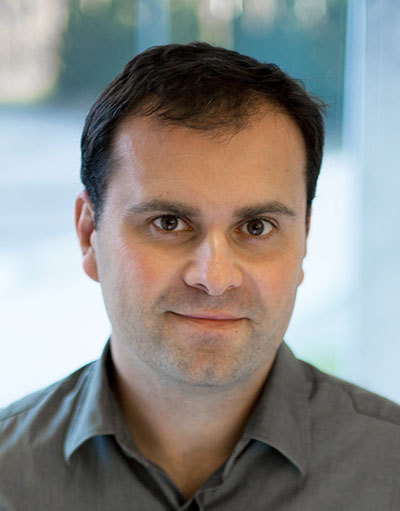
Research Talk
Advancements in prosthetic and orthotic (P&O) care and technologies
Prosthetic and orthotic (P&O) devices play an important role in restoring physical function of individuals with a variety of physical conditions. While a well-designed and well-built P&O device typically leads to successful rehabilitation, an ill-fitting and ill-functioning one can cause discomfort and restrict an individual's ability to conduct everyday activities. Digital workflows have the potential to greatly improve the efficiency and performance of the building process, thus enabling access to affordable and well-functioning P&O devices. However, several significant scientific and technological challenges must be overcome to realize clinical viability within many areas of P&O care, and especially within pediatrics. This talk aims to address the transformational changes within P&O rehabilitation, including our work focused on researching and developing digital workflows for P&O care.
Biography
Dr. Jan Andrysek is a senior scientist in the Bloorview Research Institute of Holland Bloorview Kids Rehabilitation Hospital, Canada’s largest teaching hospital focused on pediatric disabilities. He is also an associate professor within the Institute of Biomedical Engineering, University of Toronto. His research program focuses on the development and improvement of treatments and assistive technologies for children and adults with mobility impairments. Specific areas of study include prosthetic and orthotic limb design, bio sensing and biofeedback systems for gait training, and instruments to measure assistive-technology-facilitated mobility and physical activity in real-life environments. Current research is also focused on understanding the global need for prosthetic technology, and impact on mobility, physical function, and quality of life. He is the recipient of a number of awards including the 2017 Ontario Profession Engineers Engineering Medal for Research and Development, and American Institute for Medical and Biological Engineering (AIMBE) fellowship in 2019. He is also the co-founder and Chief Technical Officer at Legworks Inc., a social for-profit enterprise focused on improving prosthetic technologies and care for individuals with amputations worldwide.
Date and time:
Tuesday, Jan. 16, 2024, 12 to 1 p.m. EST
Featured Speaker:
Dr. Deryk Beal, senior scientist and chair, Research Ethics Board, Bloorview Research Institute
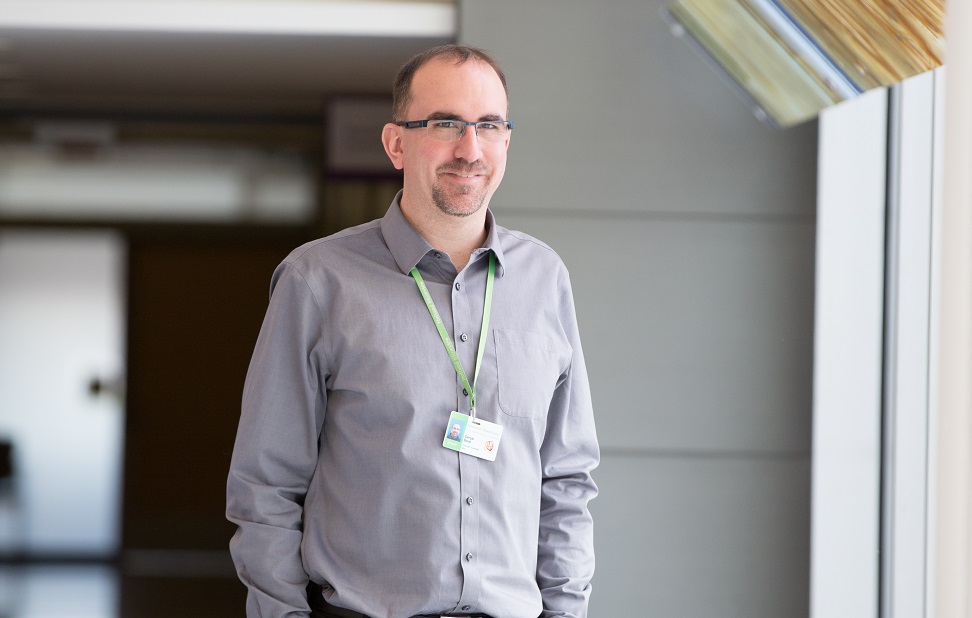
Research Talk
Brain mapping and modulation to promote rehabilitation in childhood
The human brain can be characterized as a collection of networked regions that change and adapt in response to lived experience. Understanding how these networks change with development or in the context of a neurodevelopmental disorder or brain injury may inform our approaches to rehabilitation. In this talk, Dr. Beal will outline his lab’s work to leverage their research team's knowledge of the map of the human brain to improve rehabilitation outcomes in children engaged in therapy regardless of their goal or diagnostic label. Results of Dr. Beal and his team's magnetic resonance imaging (MRI), transcranial magnetic stimulation (TMS) and transcranial direct current stimulation (tDCS) studies will be presented and summarized relative to the state of the science.
Biography
Dr. Beal specializes in the study of paediatric brain development and its disorders and is the principal investigator leading the CONNECT Lab at the Bloorview Research Institute. His research program aims to understand the neurobiology of developmental diversity and to innovate and evaluate new treatments for childhood brain-based disorders such as autism spectrum disorder, brain injury due to stroke or trauma, spinal cord injury and persistent pain. To accomplish these aims, researchers in his CONNECT Lab use tools such as magnetic resonance imaging (MRI), electroencephalography (EEG), transcranial electrical stimulation (tES) and transcranial magnetic stimulation (TMS). Dr. Beal partners with health-care practitioners, researchers, clients and their families for the purpose of accelerating our understanding of the best rehabilitation practices for the developing brain.
Date and time:
Dec. 5th, 2023, Noon to 1 p.m. EST
Featured Speaker:
Dr. Elaine Biddiss, Senior Scientist and Bloorview Childrens Hospital Foundation Chair in Pediatric Rehabilitation
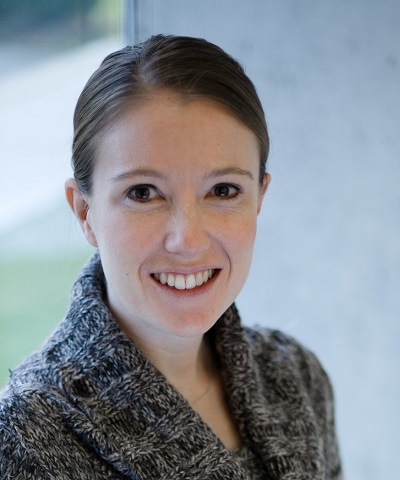
Research Talk
Bridging opportunity gaps in pediatric rehabilitation: play and learning through low-cost virtual technologies
This talk will explore the design and implementation of home-based technologies to create possibilities for: (1) family-centred rehabilitation interventions, (2) reimagining clinical assessment, and (3) promoting participation for children with disabilities. With a focus on gaming and low-cost sensors for capturing human movement, Dr. Biddiss hopes to bridge opportunity gaps for families who are unable to access care or participate in research via traditional pathways. Central to this work is the voice of knowledge holders, particularly children, and bringing the spirit of playfulness to rehabilitation.
Biography
Dr. Elaine Biddiss is a senior scientist with the Bloorview Research Institute at Holland Bloorview Kids Rehabilitation Hospital, Associate Professor with the Institute of Biomedical Engineering and Member of the Rehabilitation Sciences Institute at the University of Toronto. She holds the Bloorview Childrens Hospital Chair in Pediatric Rehabilitation. With her team, the Possibility Engineering and Research Lab or PEARL, Dr. Biddiss is dedicated to creating and evaluating innovative games and apps that support young people of all abilities to achieve their goals in both recreation and rehabilitation. She embraces an interdisciplinary design approach and enjoys the challenges of integrating engineering, medicine, arts, and design. In 2021, Dr. Biddiss co-founded Pearl Interactives, a start-up dedicated to translating her team’s research innovations into the hands of kids, their families, and clinicians.
Date and time:
Tuesday, October 17, 2023, 12 to 1 p.m. EST
Featured Speaker:
Dr. Darcy Fehlings, senior clinician scientist and head of the Cerebral Palsy Discovery Lab
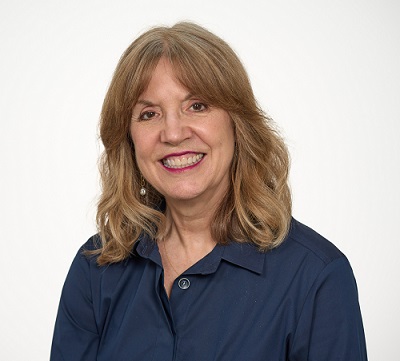
Research Talk
Genomic Architecture of Cerebral Palsy- How are the Latest Research Findings impacting on Clinical Care and Creating Opportunities for Precision Medicine?
This talk will present cutting edge research using the latest technology of whole genome sequencing to investigate the genomic architecture of cerebral palsy. This research work represents the largest whole genome sequencing study to date and arises out of large cerebral palsy (CP) networks (CP-NET and the Canadian CP Registry). The results of types and rates of pathogenic/likely pathogenic variants will be presented. The talk will also discuss the intersection of genomic etiologic risk on clinical care for individuals with CP including shifting the CP diagnosis label, genomic diagnostic testing in children with neurodisabilities, genetic actionability and enhancements in precision medicine.
Biography
Dr. Darcy Fehlings is a developmental paediatrician and professor in the Department of Paediatrics at the University of Toronto. She is a senior clinician scientist in the Bloorview Research Institute, Holland Bloorview Kids Rehabilitation Hospital. Her clinical and research work focuses on the innovation and evaluation of interventions for children with cerebral palsy including hypertonia interventions, early detection, constraint therapy, dystonia and pain management. She is the lead investigator of an Ontario Brain Institute integrated neuroscience network focused on children with cerebral palsy (CP-NET) which includes a focus on the genomics of cerebral palsy. She has held positions as the inaugural head of the Uof T Division of Developmental Paediatrics (2006-2022) and president of the American Academy of Cerebral Palsy and Developmental Medicine (2015). Read her full bio here.
Learn more about the CP Discovery Lab
Date and time:
September 12, 2023, Noon to 1 p.m. EST
Featured Speaker:
Dr. Amy McPherson, senior scientist and head of the Promoting a Future of Inclusive Healthy Lifestyles for Everyone (ProFILE) Lab

Research Talk
We are sexual too: Supporting the intimate lives of youth with disabilities through partnership and knowledge mobilization
The dominant approach to sexuality and disability in contemporary society is biomedical and focused upon abuse prevention, risk reduction and behaviour management. Absent are narratives of pleasure, choice, and the right of all people to make choices over their intimate lives.
Youth with disabilities can have the same sexual desires as their nondisabled peers, yet tailored education and representation of youth with disabilities is woefully lacking. This talk reviews the systematic development of a body of research around sexuality and disability, and how this is being mobilized through partnerships across Canada to better support youth with disabilities to make choices about their intimate lives.
Building on two decades of research with younger siblings of children with autism, we have come to understand some of the earliest manifestations of autism and related social communication challenges. These include differences in motor development, regulating and sharing attention and emotions, and directing communication to a social partner. Understanding these early signs has informed the development of early interventions and supports, including naturalistic developmental behavioural interventions. We present the Social ABCs, a Canadian-made model, as an exemplar to illustrate the pipeline from program development to delivery, with a focus on the latest data from research and implementation studies. We consider key knowledge gaps, next steps, and guiding principles for early supports.
Biography
Amy McPherson is a Senior Scientist at the Bloorview Research Institute and Associate professor at the Dalla Lana School of Public Health and Rehabilitation Sciences Institute at the University of Toronto. For the past 14 years, she has led the ProFILE (Promoting an Inclusive healthy Lifestyle for Everyone) lab and directs a comprehensive program of research in health promotion for children and youth with disabilities. Her research addresses the inequities experienced by youth with disabilities in accessing information that supports their health and wellness, especially around ‘taboo topics’ such as sexuality, incontinence and mental health. Read her full bio here.
Learn more about the ProFILE Lab
Date and time:
July 5, 2023, Noon to 1 p.m. EST
Featured Speaker:
Dr. Melanie Penner, senior clinician scientist and developmental pediatrician, and member of the Autism Research Centre
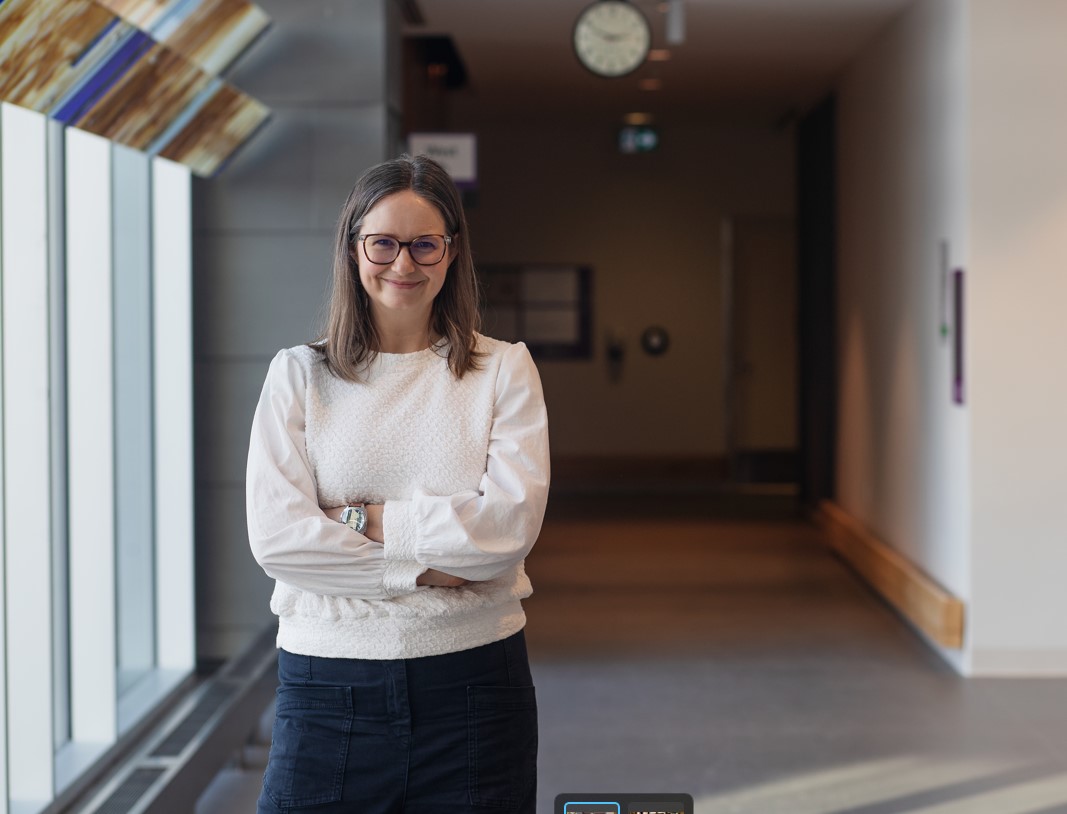
Research Talk
Beyond the Ivory Tower: Building and Evaluating Community Capacity for Autism Diagnosis
This talk will describe research happening at Holland Bloorview focused on growing capacity for autism diagnosis to enable timely access. There are many factors to consider for autism diagnosis, including analyzing the evidence base for diagnostic models and understanding the perspectives of general pediatricians. At Holland Bloorview, Dr. Penner and her team research and evaluate the accuracy of a general pediatrician autism assessment compared to a multi-disciplinary team.
Dr. Penner will also describe her work leading Project ECHO Ontario Autism Ontario, including successes, lessons learned, and plans for future evaluation of this model.
Biography
Dr. Melanie Penner is a developmental paediatrician and senior clinician scientist at Holland Bloorview Kids Rehabilitation Hospital in Toronto and an associate professor in the Department of Paediatrics at the University of Toronto. Her clinical and research interests are in autism. She is interested in service delivery for this population, including evaluating the impact of new care models. As the lead physician in the ECHO Ontario Autism Program, she works to expand Ontario's diagnostic capacity for autism spectrum disorder in the community setting, decreasing wait times and facilitating earlier access to appropriate supports. Dr. Penner is also dedicated to including the voices of autistic individuals in many aspects of her work to improve our understanding of their experiences and to provide better care. Read her full bio here.
Learn more about the Autism Research Centre
Date and time:
June 6, 2023, Noon to 1 p.m. EST
Featured Speaker:
Dr. Shannon Scratch, clinician scientist, clinical neuropsychologist, and director of the NOvEL Lab (Neurorehab Outcomes via Education and Learning)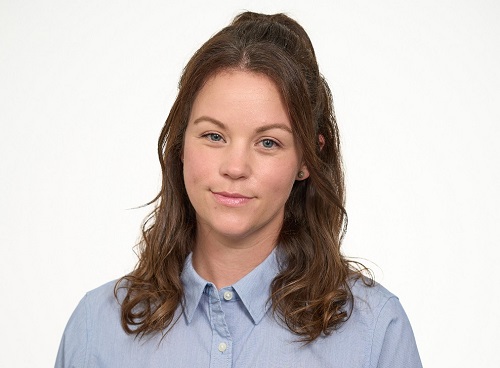
Research Talk
From Bedside to Bench: Youth and Family Experiences as a Driver for Research in Acquired Brain Injury
Acquired brain injuries and concussions happen quickly, are often unexpected, and can change life trajectories for young people and their families. Young people can have trouble returning to the most important areas of their lives because they experience changes in cognition, mental heath and behaviours, physical functioning, or their social world and environment. Every young person experiences their injury differently, and have a unique pattern based on who they are before their injury, their age at injury, and the type of injury. There are very few interventions designed with young people and their families to support them across these different areas of life.
At Holland Bloorview, we have been seeking to fill this gap. This talk will present some of the key interventions and education programs that we are designing. Through an interdisciplinary approach, these interventions start from the ground (the bedside) with stories from young people, their families, and clinicians. They then travel to the bench (the lab) to be created and tested, with the goal that young people living with acquired brain injury and concussion re-engage with the important areas of their lives.
Biography
Dr. Shannon Scratch is a clinician scientist, clinical neuropsychologist and holds the Holland Family Professorship in Acquired Brain Injury. She is also director of the NOvEL (Neurorehab Outcomes via Education and Learning) Lab. Her research focuses primarily on developing and exploring novel ways to help children with acquired brain injuries and concussions recover and reach their full potential. This means co-creating toolkits with teachers to teach educators about ABI to support students in their classrooms, or developing assessment tools for clinicians to use when evaluating when their concussed clients can return to playing sports, among other research projects. Read about Dr. Shannon Scratch’s research publications here. Read her full bio.
Learn more about the NOvEL Lab
Date and time:
May 2, 2023, Noon to 1 p.m. EST
Featured Speaker:
Dr. Tom Chau, senior scientist and head of the PRISM Lab
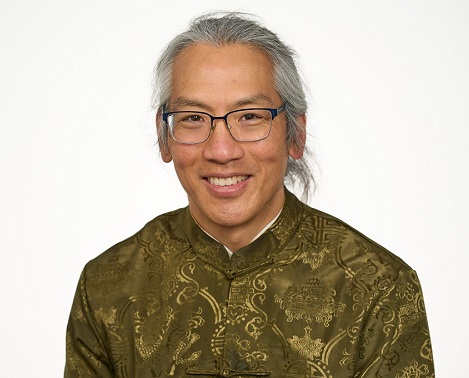
Research Talk
Brain-computer interfaces as access technologies for children and youth with disabilities: It’s the thought that counts
This talk will focus on some recent advances in non-invasive brain-computer interfaces (BCIs) developed at Holland Bloorview as an alternative access pathway to communication and environmental control. BCIs directly harness brain activity associated with functional intent and thereby bypass the motor system in connecting people to the world around them. At Holland Bloorview, we have been investigating near-infrared spectroscopic BCIs, neuroelectric BCIs, ultrasonic BCIs and some combinations thereof. Each modality will be briefly introduced, and a sampling of novel BCI control paradigms will be exemplified. We are only beginning to understand the enabling and therapeutic potential of BCIs in the development of children. The presentation will close with a description of how these technologies are being translated into clinical practice at Holland Bloorview.
Biography
Tom Chau is a Senior Scientist at Holland Bloorview Kids Rehabilitation Hospital and Professor of Biomedical Engineering at University of Toronto. He holds the Raymond G. Chang Foundation Chair in Access Innovations and previously, a Canada Research Chair in Pediatric Rehabilitation Engineering (2004-2014). A core research focus of his PRISM lab is the investigation of novel access pathways to facilitate communication for children and youth with severe physical impairments. He has published over 220 refereed articles. Chau’s lab has developed numerous access innovations that are being used by children and youth, locally and abroad. In the last decade and a half, his lab has created a variety of brain-computer interfaces that facilitate communication and control through mental activities. His lab has been featured in national and international media. His contributions to science, engineering, and the quality of life of children and youth with disabilities have been recognized with various awards, including the da Vinci Award (USA), the AACPDM’s Cathleen Lyle Murray Award (USA), Canada’s Top 40 Under 40, Dr. Jonas Salk Award, Meritorious Service Cross, the Order of Ontario, and the Governor General’s Innovation Award.
Learn more about the PRISM Lab
Date and time:
April 4, 2023, Noon to 1 p.m. EST
Featured Speaker:
Dr. Jessica Brian, senior clinician-scientist, psychologist, co-lead of the Autism Research Centre
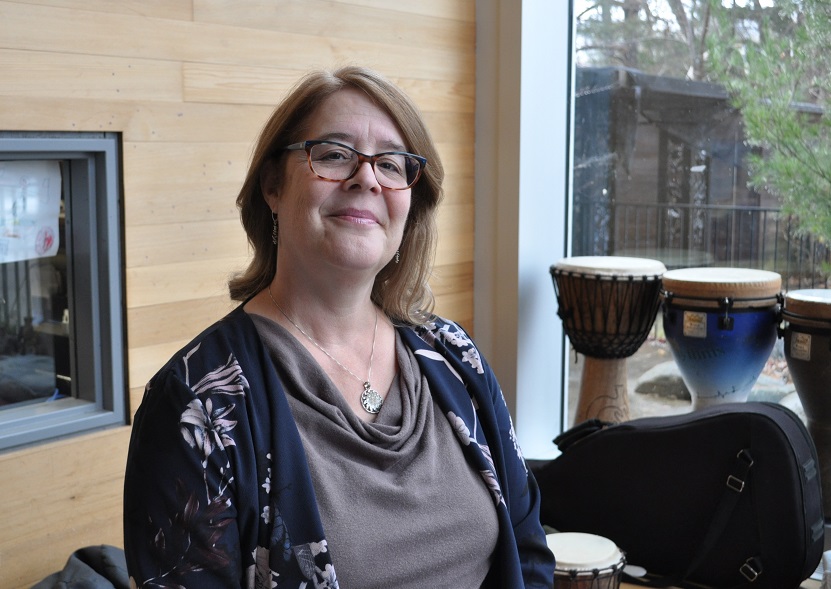
Research Talk
From Early Signs to Early Supports: What do we know about autism and social communication challenges in early life and how can we provide developmental supports as soon as possible?
Building on two decades of research with younger siblings of children with autism, we have come to understand some of the earliest manifestations of autism and related social communication challenges. These include differences in motor development, regulating and sharing attention and emotions, and directing communication to a social partner. Understanding these early signs has informed the development of early interventions and supports, including naturalistic developmental behavioural interventions. We present the Social ABCs, a Canadian-made model, as an exemplar to illustrate the pipeline from program development to delivery, with a focus on the latest data from research and implementation studies. We consider key knowledge gaps, next steps, and guiding principles for early supports.
Biography
Dr. Jessica Brian is a clinical psychologist and senior clinician-scientist at Holland Bloorview Kids Rehabilitation Hospital, where she co-leads the Autism Research Centre, and is an associate professor at University of Toronto’s Department of Paediatrics. She specializes in neurodevelopmental disabilities with a particular interest in early identification and supports in autism.
Dr. Brian has spent the last two decades collaborating in longitudinal research investigating the development of children at elevated likelihood for autism, followed from infancy into adolescence (Canadian Infant Sibling Study and Baby Siblings Research Consortium). Informed by this early identification work, Dr. Brian co-developed the Social ABCs, a parent-mediated intervention for toddlers showing early signs of autism or related challenges. She has a long history of training developmental paediatric fellows, psychology interns and community providers (paediatricians, psychologists, early childhood educators) in early detection, assessment, diagnosis and supports for autistic children and youth and their families.
Interested in learning more about our future speakers?
Please email BRIresearchrounds@hollandbloorview.ca to be added to our mailing list

